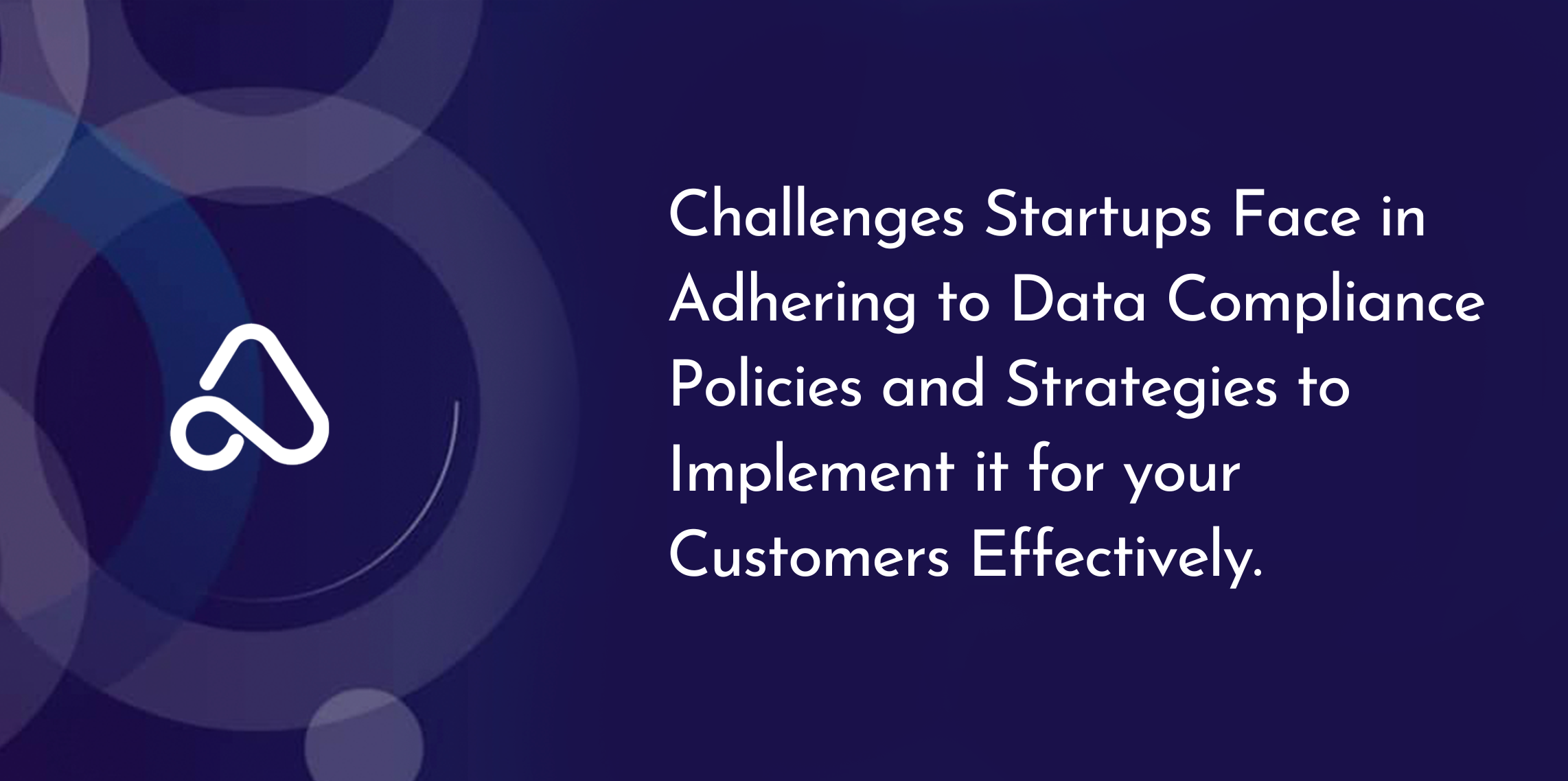Aidi — Challenges Startups Face in Adhering to Data Compliance Policies and Strategies to Implement it for your Customers Effectively
Return
In our last article, we discussed data compliance policies and why they are essential for startups to adhere to. While most startup founders know these policies, some find it difficult to adhere to them due to challenges particular to their startup or location.
Some Challenges Startups Face to Adhere to Data Compliance Policies
- Limitation of Financial Resources: Many startups operate on lean/tight budgets and will most likely prioritize product development, marketing, and customer acquisition over investing in compliance. Investing in compliance can be quite costly as it involves payment for legal consultation from experts, upgrading your technological systems to implement security measures, and organizing training for your staff on data protection practices. Seeing all these expenses may discourage founders from adhering to data protection policies from the onset, and many would rather choose to invest in it much later as the startup grows.
- Complexity of Regulations: Compliance policies vary across regions and each region has unique requirements, which makes it difficult for startups to keep up. For instance, unlike the European Union’s centralized GDPR, Africa’s data compliance landscape is divided into fragments, with each country implementing its own regulations. Startups operating across multiple African countries need to navigate different sets of regulations, which can be time-consuming and complex.
- Lack of Data Protection Awareness: Data privacy and protection are still emerging issues in many parts of the world- Africa, for instance. Some startups may not fully understand the importance of compliance with these policies or the potential legal repercussions of non-compliance. As a result, some totally ignore it, thinking it is a problem that affects only the “bigger” companies.
- Lack of Expertise: Adhering to data compliance policies requires specialized knowledge in legal, technical, and operational domains. Startups often face challenges like unfamiliarity with regulations that are region-specific like GDPR for European Union citizens, CCPA for California residents, etc, making it hard for startups to fully understand their obligations, which can lead to them falling out of compliance.
- Costly Compliance Tools: Many startups lack access to affordable tools for automating and managing compliance. Enterprise-level solutions often cater to larger companies, making them expensive for smaller businesses. Some of these important tools like Data Mapping Software for tracking where user data is stored and how it flows through the organization, Encryption and Tokenization Tools that protect sensitive information, Monitoring and Reporting Systems that are essential for identifying breaches and maintaining transparency, are very costly to purchase and may strain the startup’s budget.
Strategies to Effectively Implement Data Protection for Your Customers.
Having stated the challenges some startups face ith adhering to data compliance, here are some strategies to help startups navigate and implement these policies effectively:
- Start with a Data Audit: Conduct an audit of all the data your startup collects, including where it’s stored, how it’s used, and who has access. This will help you understand what policies bind your startup and users and help you put in place the necessary measures to ensure your users' data are protected and your startup is compliant.
- Leverage Free or Low-Cost Tools: Data compliance tools are expensive, but you can leverage free or low-cost tools, such as encryption software or GDPR templates to get your company started on data compliance. You can also partner with service providers to hire data compliance consultants or experts on a short-term basis, to help you set up compliant data management processes.
- Seek Grants or Support: Many governmental organizations offer grants or support programs to help small businesses enhance their cybersecurity and compliance measures. Always be on the lookout for opportunities like this to secure them for your startup and build a foundation of compliance without compromising growth.
- Create Transparent Privacy Policies: Users need to understand how their data is being used and a transparent privacy policy lets users know how their data is used and what rights they have. Create a clear, accessible privacy policy that outlines what data you collect, why you collect it, and how users can manage their data preferences. Always update this policy to reflect any changes in your startup’s data practices.
- Conduct Regular Training for Your Team: Make data compliance training compulsory for every member of your startup. Regularly train your team on data privacy practices and protocols, so everyone understands the importance of protecting user data and following compliance procedures, from securing data to honouring deletion requests.
- Regularly Review and Update Compliance Practices: Data policies are continually evolving, and staying compliant requires making updates or changes as new policies spring up. Stay up to date on new regulations where you operate by subscribing to regulatory newsletters or social platforms or consulting with experts to stay updated on changes that may affect your startup.
Following these strategies can help you implement data protection effectively in your startup, helping you avoid legal repercussions and ensuring your customers’ data are rightly protected.





